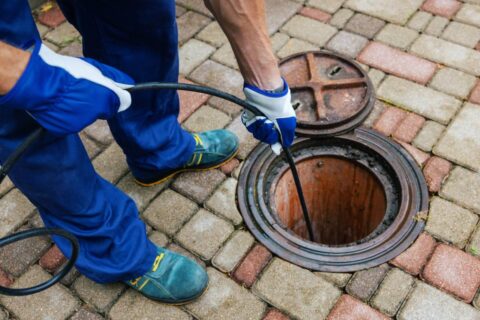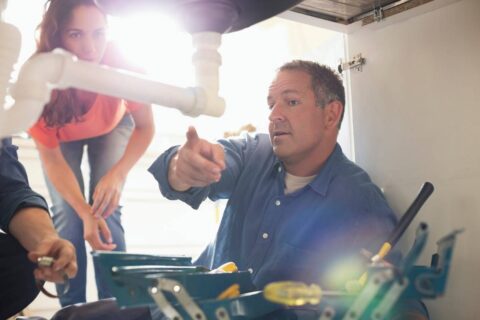Dangers of a Gas Leak
Gas leaks typically occur when the seals that connect natural gas appliances to your pipes erode over time, but any damage to your natural gas system may result in a leak. Regardless of where the leak is or how small it is, there is always a potential for that leak to become dangerous. Let’s look at the dangers of a gas leak.
Dangers of a Gas Leak
Natural gas is highly flammable and can produce carbon monoxide. When we inhale this byproduct at higher concentrations, it physically displaces the oxygen in our blood. Our organs cannot function without oxygenated blood. The earliest symptoms have often been described as “a bad flu,” but that changes quickly. If you are exposed for too long, you will pass out and die if you don’t receive prompt medical attention. This is rare for conscious people, but we are especially vulnerable while we sleep.
Given the severity of the consequences associated with a gas leak, it is recommended that every household undergo a gas leak detection service in Highland Park once per year. In between those visits, you should take proper precautions and watch for the tell-tale signs of a gas leak.
Recognizing a Gas Leak
Thanks to improvements in our systems, clear signs indicate the possibility of a gas leak. The primary sign is the signature “rotten egg” smell, which was first added to natural gas in 1937. If you are unsure of what you’re sensing, here are some other common signs of a gas leak.
- A hissing or whistling sound near a natural gas appliance or a gas line
- A dust cloud
- Bubbles in water, especially in hot water
- Dead or dying houseplants without a clear cause
- Visible damage to gas lines
The good news is that the sulfur or “rotten egg” smell associated with gas leaks is really hard to miss. Once you notice it, you’ll be hard-pressed to ignore it.
Reacting to a Gas Leak
If you suspect that you have a gas leak, then your first move has to be evacuation. Grab your children and get out. Leave the door open on your way out, and ask your neighbors to call emergency services. It may sound a bit rushed, but the potential for harm is so high that this is often the best course of action.
Even if your problem is as minor as a stovetop that’s left on without lighting, the consequences can be dire. If you know the direct cause of the issue, then turn off the source. From there you should proceed in the exact same manner. There is no way for you to determine when it is safe for you to re-enter your home without professional intervention when you have had a gas leak.
Preventing a Gas Leak
Our home systems are more sturdy than ever, but they are still imperfect. By having your annual inspections with your plumbing contractor in Highland Park, you’re decreasing the chance that wear and tear will create an emergency in your household. However, your inspector cannot anticipate everything.
A bad earthquake, an unexpected freeze, or even a random malfunction could cause a minor to major gas leak in your home. You have to be prepared for that. Fortunately, we now have affordable access to carbon monoxide detectors built for individual homes. They are unlikely to point out a gas leak in its early phases, but they’re your best bet for late detection when carbon monoxide levels are potentially dangerous.


